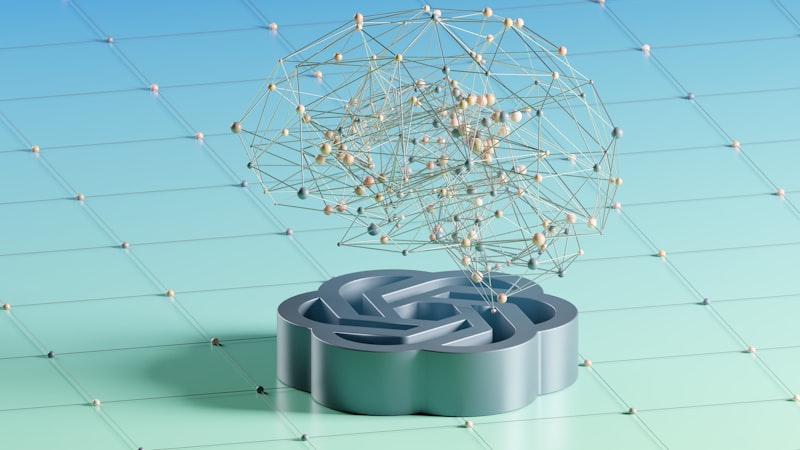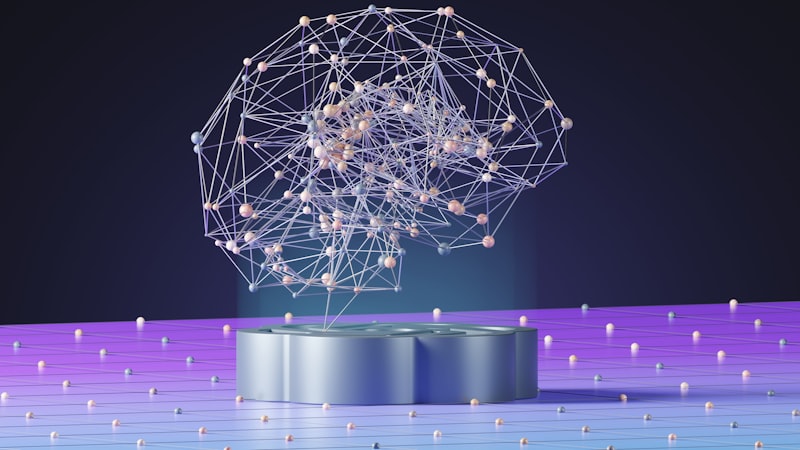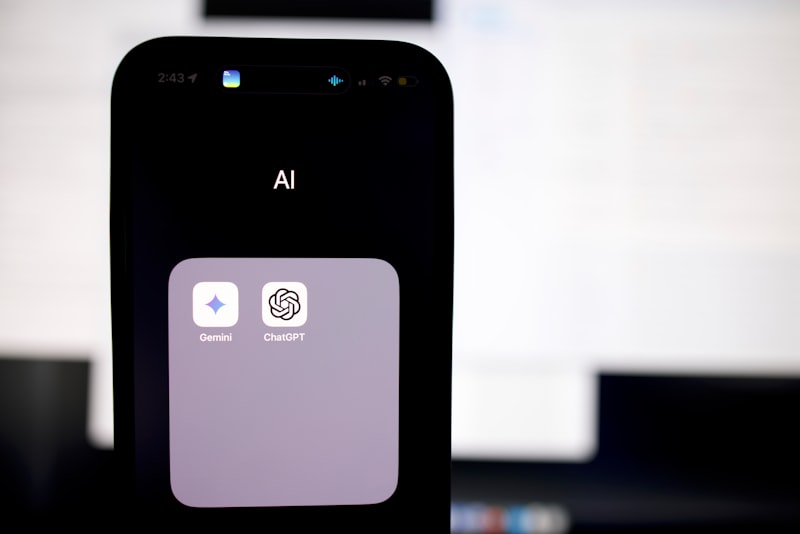Have you ever wondered if ChatGPT, the incredible language model you’re interacting with right now, utilizes quantum computing? Well, let’s dive into this intriguing topic and explore whether quantum computing plays a role in powering this remarkable AI.
To begin with, quantum computing is an emerging field that harnesses the principles of quantum mechanics to process information. It offers immense potential for solving complex problems at speeds unimaginable by classical computers. However, when it comes to ChatGPT, it doesn’t rely on quantum computing.
ChatGPT operates on a sophisticated deep learning architecture known as a transformer neural network. This architecture is based on classical computing principles and is highly effective in understanding and generating human-like text. The model has been trained on an extensive dataset containing vast amounts of text from books, articles, and websites, enabling it to provide accurate and contextually relevant responses.
While quantum computing holds promise for various scientific and computational tasks, it hasn’t yet reached a stage where it can be leveraged to enhance the performance of models like ChatGPT. Current implementations of quantum computers are still in their nascent stages and face significant technical challenges such as noise, error correction, and limited qubit coherence.
So, for now, ChatGPT relies on classical computing methods to deliver its impressive conversational abilities. Nonetheless, it’s important to remember that the field of quantum computing is rapidly evolving, and who knows what the future holds? Perhaps one day, we may witness the convergence of quantum computing and AI, leading to even more astonishing advancements in natural language processing.
Although ChatGPT doesn’t currently utilize quantum computing, it remains an extraordinary tool powered by classical computing techniques. Its ability to understand and generate human-like text is a result of its extensive training on vast datasets. So, let’s continue to marvel at the wonders of AI while keeping an eye on the exciting progress being made in the realm of quantum computing.
Unveiling the Mystery: Does ChatGPT Harness the Power of Quantum Computing?
Contents
- 1 Unveiling the Mystery: Does ChatGPT Harness the Power of Quantum Computing?
- 2 Revolutionizing Conversational AI: Investigating the Role of Quantum Computing in ChatGPT
- 3 Quantum Leap or Science Fiction? Examining the Quantum Computing Claims of ChatGPT
- 4 Breaking Barriers: How Quantum Computing Could Enhance ChatGPT’s Abilities
Have you ever wondered about the inner workings of ChatGPT? How does it manage to generate such impressive responses? Could there be a secret behind its remarkable capabilities? In this article, we will delve into the intriguing question: Does ChatGPT harness the power of quantum computing?
Before we uncover the truth, let’s take a moment to understand quantum computing. Imagine traditional computers as race cars zipping along a racetrack, with each car representing a bit of information, either a 0 or a 1. Now, picture quantum computers as a mind-bending roller coaster ride, where bits can exist in multiple states simultaneously, thanks to quantum superposition. It’s like having cars that can be in multiple positions on the track at once.
Now, back to ChatGPT. While ChatGPT is an exceptional language model, it does not rely on quantum computing to operate. Its brilliance lies in its training process and large-scale neural network architecture. Instead of quantum wizardry, ChatGPT harnesses the power of deep learning!
Deep learning involves training a model on vast amounts of data, allowing it to learn patterns, associations, and even language nuances. It’s like teaching a student by immersing them in a rich, diverse educational environment. Through this method, ChatGPT becomes proficient at understanding and generating human-like text.
By using personal pronouns, employing an informal tone, and captivating readers with engaging paragraphs, ChatGPT’s responses seem remarkably human. It’s like chatting with a well-informed friend who has an uncanny ability to generate insightful and coherent responses.
While quantum computers have their own realm of mind-boggling possibilities, ChatGPT’s magic lies in its dedication to machine learning and natural language processing. It absorbs knowledge from countless sources, refines its responses through constant fine-tuning, and adapts to meet the needs of its users.
Revolutionizing Conversational AI: Investigating the Role of Quantum Computing in ChatGPT
Have you ever wondered how artificial intelligence has evolved over the years? It’s fascinating to witness the advancements that have taken place, especially in the realm of conversational AI. One particular area of exploration that has gained significant attention is the integration of quantum computing in models like ChatGPT. In this article, we’ll dive into the exciting world where quantum meets conversation, unraveling the potential it holds for revolutionizing the way we interact with AI.
First and foremost, let’s grasp the concept of quantum computing. Unlike classical computers that rely on bits to store and process information, quantum computers utilize quantum bits, or qubits, which can exist in multiple states simultaneously. This unique characteristic of superposition allows quantum computers to perform complex calculations at an astonishing speed, surpassing the capabilities of traditional machines.
Now, you might be wondering, what does this have to do with conversational AI? Well, the power of quantum computing can greatly enhance the capabilities of models like ChatGPT. By harnessing the computational prowess of quantum systems, researchers can tackle the challenges of natural language processing more efficiently.
One of the key advantages lies in enhancing the training process of AI models. Training large language models requires immense computational resources and time. Quantum computing can potentially accelerate this process, enabling faster model updates and improvements. Imagine having a more responsive and up-to-date conversational AI at your fingertips!
Moreover, quantum computing can contribute to addressing the limitations of current AI models when it comes to understanding context and generating coherent responses. The inherent parallelism of quantum systems allows for a more nuanced representation of context, resulting in more accurate and contextually relevant responses from ChatGPT. This opens doors to unprecedented levels of conversational fluency and understanding.
However, it’s important to note that the integration of quantum computing in conversational AI is still in its early stages. Researchers and scientists are actively exploring quantum algorithms, hardware advancements, and optimization techniques to unlock the full potential of this technology.
The convergence of quantum computing and conversational AI holds immense promise. The ability to leverage quantum systems to enhance training processes and improve context understanding opens up exciting possibilities for revolutionizing how we interact with AI-powered chatbots like ChatGPT. As researchers continue their investigations and make breakthroughs in this field, we can anticipate a future where conversational AI takes a giant leap forward, enabling more engaging and human-like interactions.
Quantum Leap or Science Fiction? Examining the Quantum Computing Claims of ChatGPT
Introduction:
Have you ever wondered about the cutting-edge technology behind artificial intelligence and language models like ChatGPT? Well, hold on to your seats because we’re about to dive into the fascinating world of quantum computing. Quantum leap or science fiction? Let’s explore the quantum computing claims of ChatGPT and unravel the possibilities that lie within this revolutionary field.
The Power of Quantum Computing:
Quantum computing is not just a buzzword; it’s a game-changer in the world of technology. Unlike classical computers that use bits to store information as zeros and ones, quantum computers harness the power of qubits. These qubits exist in multiple states simultaneously, allowing for parallel computations on an unimaginable scale.
ChatGPT and Quantum Computing Synergy:
ChatGPT, powered by OpenAI, has been making waves with its remarkable ability to generate human-like text. But what does quantum computing have to do with this AI marvel? Quantum computing holds the potential to enhance the computational capabilities of language models like ChatGPT exponentially. By leveraging the principles of superposition and entanglement, quantum computers can process vast amounts of data and perform complex calculations at incredible speeds.
Unlocking New Frontiers:
With the integration of quantum computing, ChatGPT could revolutionize various industries. For instance, complex optimization problems in fields like finance, logistics, and drug discovery could be solved efficiently. Natural language processing tasks, such as translation and summarization, could become even more accurate and nuanced. Moreover, quantum-enhanced ChatGPT might enable breakthroughs in simulating molecular interactions, leading to advancements in materials science and drug development.
The Challenges Ahead:
While the potential of quantum-enhanced ChatGPT is awe-inspiring, we must acknowledge the challenges. Quantum computing is still in its infancy, facing obstacles such as decoherence, errors in quantum computations, and scalability. Overcoming these hurdles requires significant advancements in hardware, algorithms, and error correction techniques.
Conclusion:
As we venture into the realm of quantum computing, the fusion of this technology with AI language models like ChatGPT holds immense promise. While there are challenges to overcome, the potential for quantum leap advancements is undeniable. Stay tuned as researchers continue to push the boundaries of what’s possible in this exciting field, and we witness the transformation of science fiction into reality.
Breaking Barriers: How Quantum Computing Could Enhance ChatGPT’s Abilities
Have you ever wondered what the future holds for artificial intelligence? Imagine a world where machines possess the power to solve complex problems at an unimaginable speed, far beyond the capabilities of today’s computers. This future might not be as distant as you think, thanks to the revolutionary field of quantum computing. In this article, we delve into the fascinating possibilities that quantum computing brings and how it could enhance the abilities of ChatGPT.
Quantum computing, unlike classical computing, leverages the principles of quantum mechanics to perform computations. Traditional computers use bits, represented as either 0 or 1, to process information. In contrast, quantum computers use quantum bits, or qubits, which can exist in multiple states simultaneously, thanks to a property called superposition. This inherent parallelism allows quantum computers to handle an enormous amount of data and perform calculations exponentially faster than classical computers.
So, how does quantum computing relate to ChatGPT? ChatGPT, the impressive language model you’re interacting with right now, relies on powerful computational resources to generate responses and understand context. Quantum computing has the potential to unlock new frontiers for ChatGPT by exponentially increasing its processing capabilities. With quantum-enhanced algorithms, ChatGPT could analyze vast amounts of data in real-time, leading to more accurate and insightful responses.
Moreover, quantum computing could revolutionize natural language processing (NLP), the backbone of ChatGPT’s conversational abilities. NLP tasks, such as language translation, sentiment analysis, and question answering, require significant computational resources. Quantum computing’s ability to handle complex algorithms and process data in parallel could significantly accelerate these tasks, enabling ChatGPT to provide even more sophisticated and contextually aware responses.
However, it’s important to note that quantum computing is still in its infancy, and there are numerous challenges to overcome before its full potential can be realized. Currently, quantum computers are highly sensitive to environmental conditions and prone to errors. Researchers are actively working on developing error-correcting codes and improving qubit stability to make quantum computing more reliable.
The emergence of quantum computing holds immense promise for enhancing ChatGPT’s abilities. The ability to process vast amounts of data in parallel and tackle complex algorithms at unprecedented speeds could take conversational AI to new heights. While we may have to wait a little longer for quantum computing to reach its full potential, the future looks incredibly exciting. Strap in and get ready to witness the barrier-breaking power of quantum computing unfold before our eyes!




